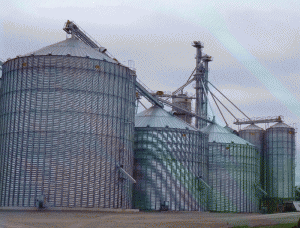In the news
NEWS BITES THAT MATTER
Documentary explores farmers’ social license
The Saskatchewan canola producers’ association, SaskCanola, recently launched a 30-minute, YouTube-hosted documentary exploring famers’ social license. Called “License to Farm,” this concise discussion features farmers, scientists, and agriculture industry leaders discussing key areas of concern for today’s consumer, such as GMOs, pesticide use, and more.
The intention of the film is to encourage farmers to share their personal experiences regarding how they farm, and to spark dialogue and discussion with consumers who have questions about how their food is grown.
You can watch the documentary at www.licensetofarm.com and on YouTube, and can join the conversation regarding social license by following @licensetofarm on Twitter and other social media platforms. •
Crop rotations and GHGs: what have you changed?
The Canadian government and several provincial governments are moving towards regulated commitments to addressing climate change. What impact could these regulations have on farmers? Any regulatory changes could potentially cost farmers and the agriculture industry a significant amount of money — how have farmers already reduced carbon and greenhouse gas emissions? These are the questions a project out of the University of Saskatchewan is looking to address, but the researchers need farmer participation to make it happen.
Stuart Smyth is leading the survey-based research project conducted by Social Sciences Research Laboratories, at the University of Saskatchewan. The project aims to quantify how farming practices have evolved since the advent of herbicide-tolerant crop varieties, among other advances. The project intends to create benchmarks of farming practices, something that’s never really been done before in the context of a carbon-economy.
This survey will be entirely confidential, and names will not be attached to any results. As a thank you for participating, farmers will be entered into a random draw for a $250 fuel card. One winner will be selected for every 100 completed surveys.
Findings of the research project will be shared with Grain Farmers of Ontario.
To sign up to participate in the survey please visit: http://tinyurl.com/croprotation survey2016. •
ChemChina buys Syngenta for US$43 billion
Early last month, China National Chemical Corporation (ChemChina) announced its successful $43 billion bid for Swiss-based life science company Syngenta.
“Syngenta will remain Syngenta and will continue to be headquartered in Switzerland, reflecting this country’s attractiveness as a corporate location,” said Michel Demaré, chairman of Syngenta. Demaré will stay with the company as vice chair and lead independent director.
Syngenta’s Canadian contingent said it would be “business as usual” for the company here.
The sale will be subject to country-specific anti-trust approvals. •
PMRA backs off conditional pesticide registrations
In a move designed to improve the “openness and transparency” of Canada’s pesticide registration system, Health Canada’s Pest Management Regulatory Agency (PMRA) recently announced it would cease granting conditional registrations as of June 1, 2016.
Pesticides are registered in Canada only after a rigorous scientific evaluation determines no harm to human health, future generations, or the environment will result from exposure or use. Conditional registrations have been granted on occasion when the scientific review determines that the risks of a pesticide are acceptable but that additional confirmatory information is required. Unlike full registrations, conditional registrations do not undergo a public consultation until the registration is amended, renewed, or converted to a full registration.
Approximately one percent of all pesticides in Canada are conditionally registered.
Moving away from conditional registrations will provide reassurance that all pesticide registration decisions are made with the same high level of scientific and public scrutiny, says Health Canada.
A comment period regarding the change is open until March 19, 2016, through Health Canada’s website: www.healthcanada.gc.ca. •








